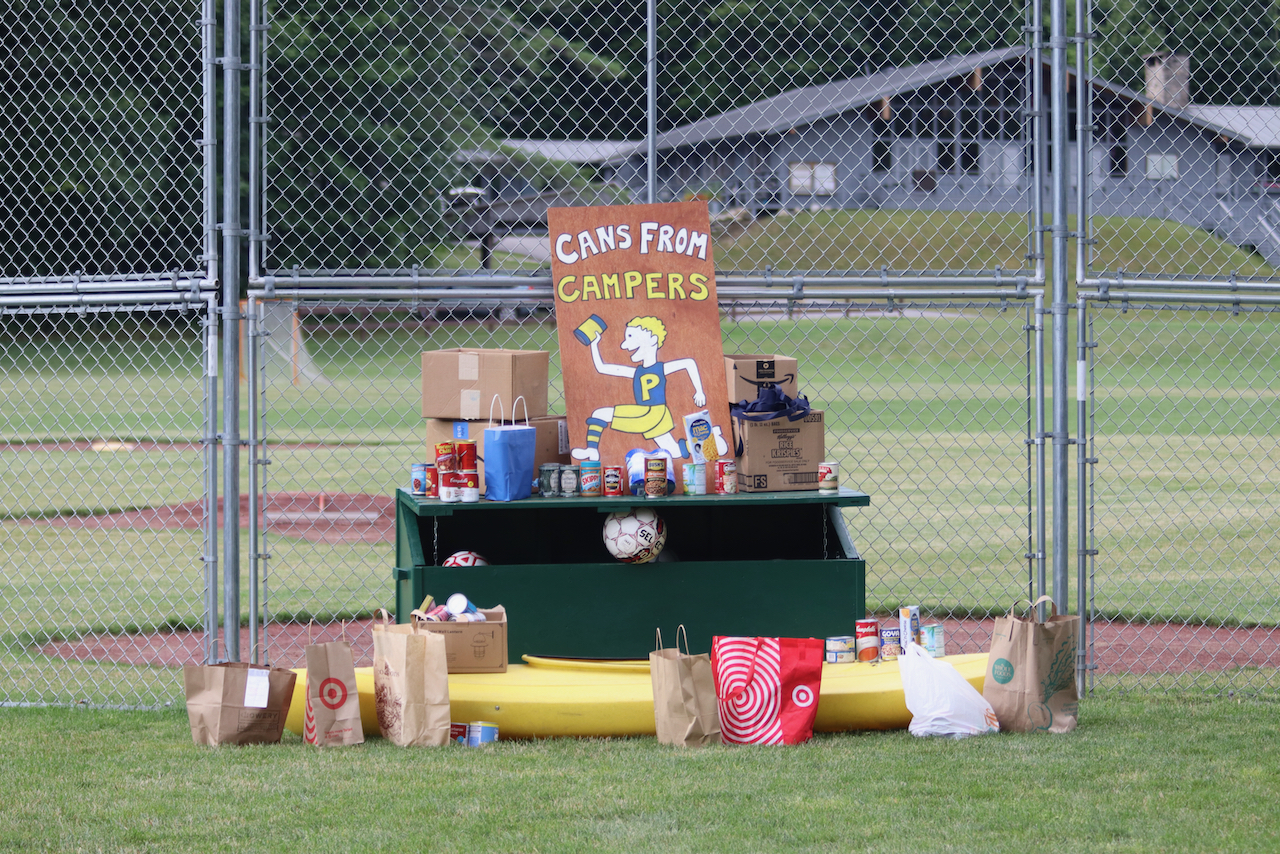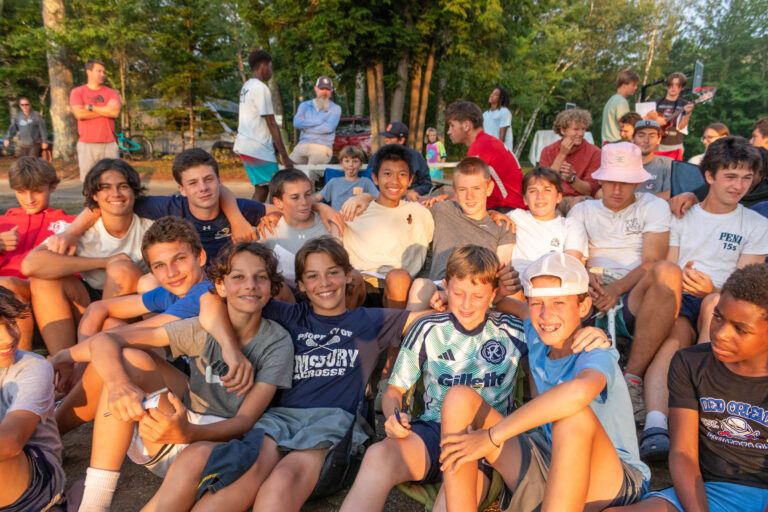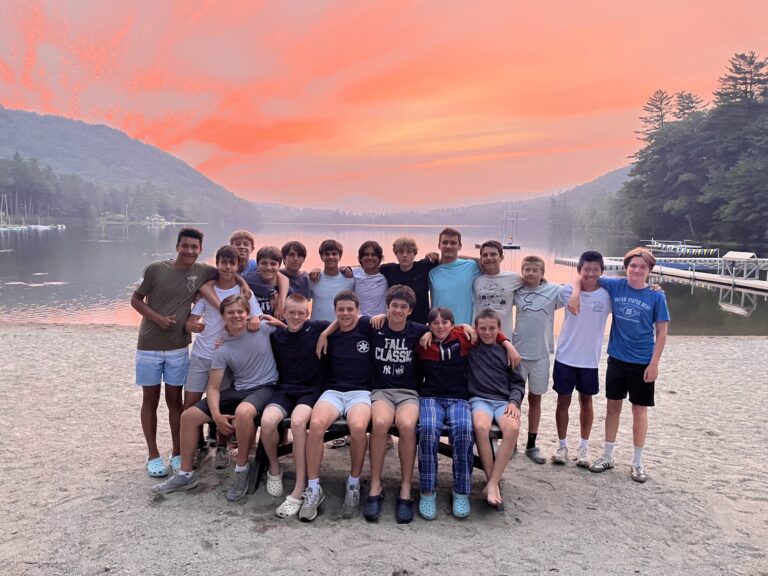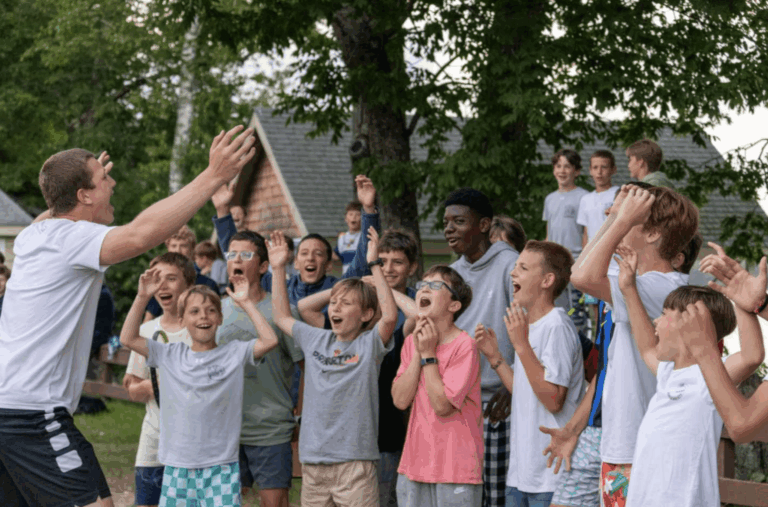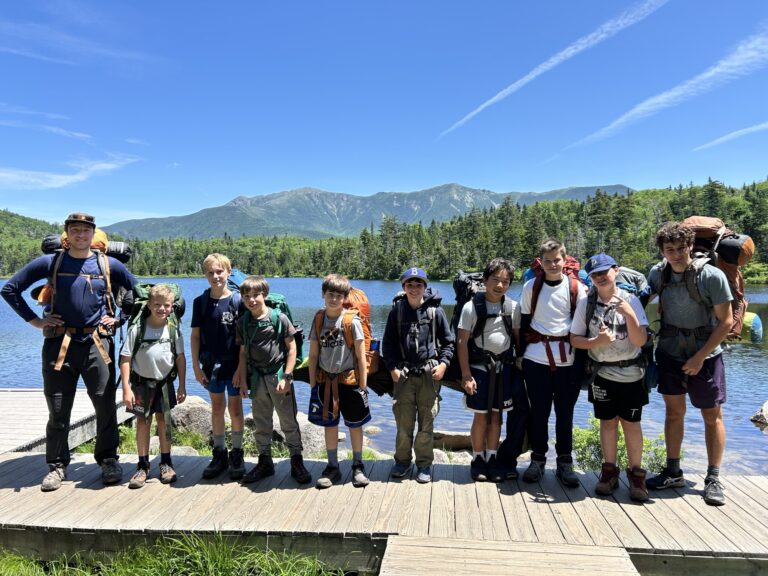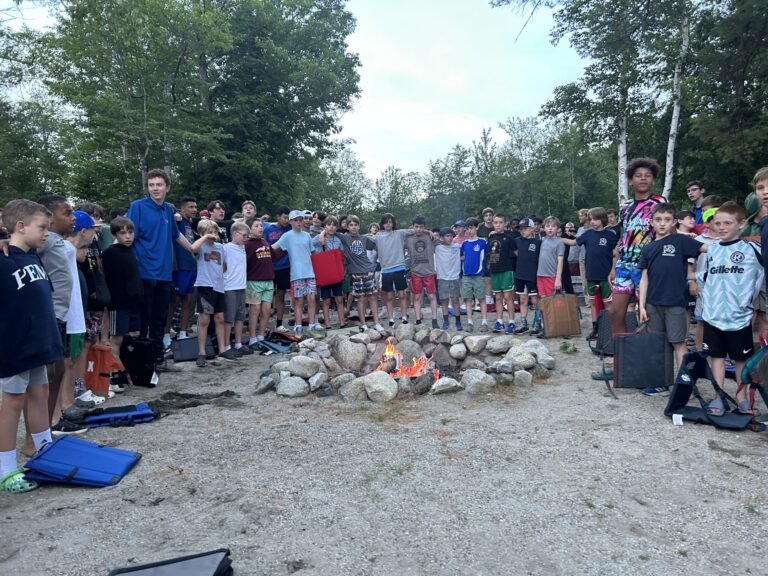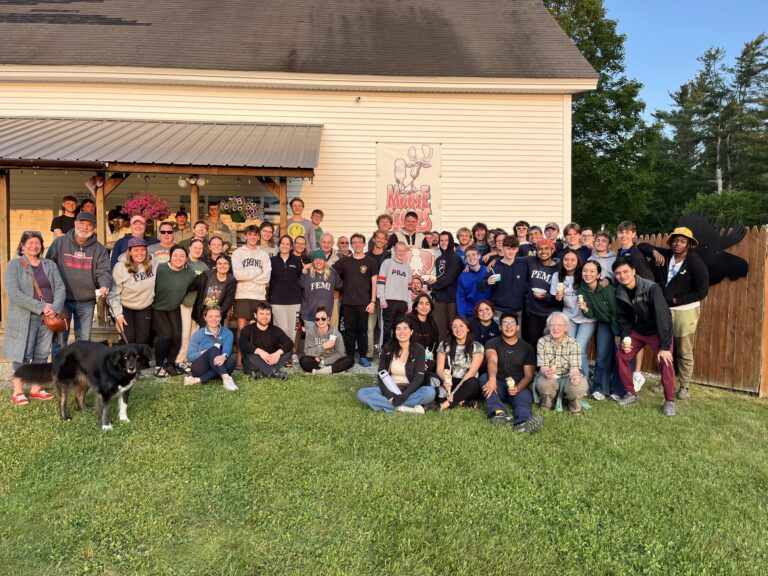- Camp Pemigewassett, Daily Life at Pemi, Education at Pemi, Pemi Traditions
Community Service & Engagement at Pemi
The Pemi experience provides innumerable opportunities for boys to have fun, try new activities, improve in areas of strength, and learn how to live in community with their peers. In addition to all these benefits, Pemi provides some less obvious but equally important chances for boys to develop, as our mission states, into “caring and engaged citizens of our diverse and ever-changing world.” Through a number of service projects offered every summer, Pemi boys engage with the broader New Hampshire community and give their time and energy to several worthy causes. This has taken different forms over our 116 years of existence. Highlighted below are several of the current opportunities Pemi boys have to engage in service.
Volunteering with The Prouty
Initiated in 1982 by four nurses from Dartmouth Cancer Center, The Prouty raises money for cancer research and patient services. It has become northern New England’s largest family-friendly fundraising event, with a goal in 2023 of raising $7 million. The 77-mile and 100-mile bike routes that form a core part of the fundraising traverse Route 25A, the road Pemi is located on. The hardest stretch of the whole ride is a 3-mile climb up and over Mt. Cube, right down the road from us. In order to assist riders as they crest this hill, Pemi campers operate a SAG (stop-and-go) Station, providing hydration, snacks, and vocal encouragement!
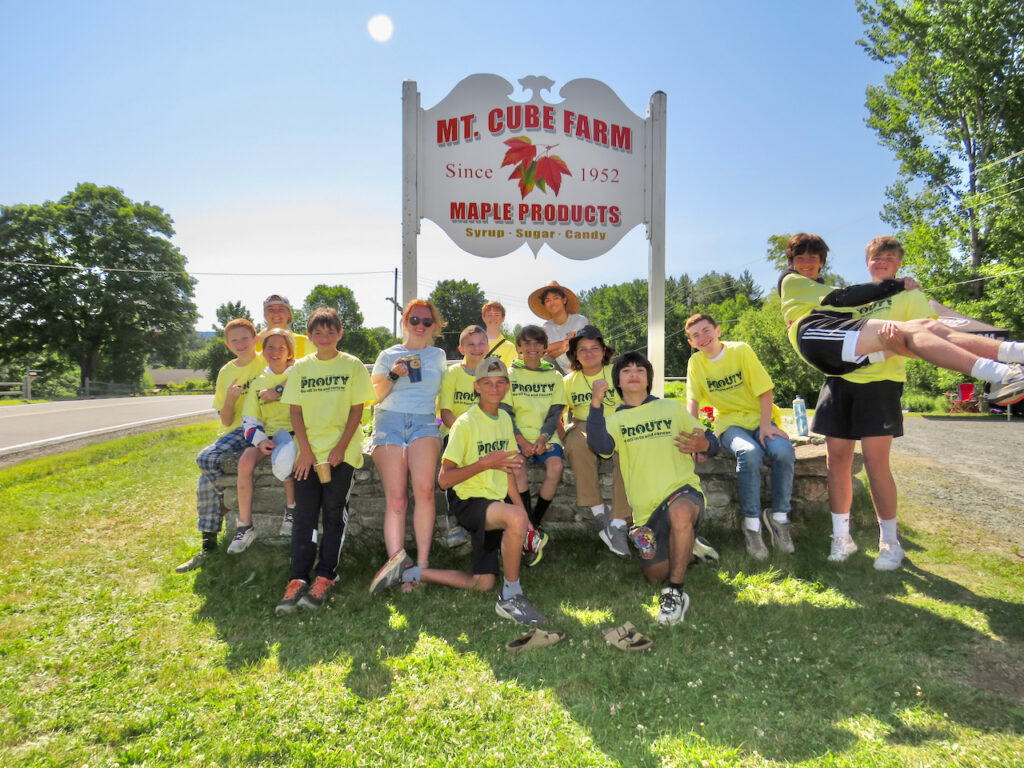
The Pemi team wakes up at 5am, eats an early breakfast in the Mess Hall, loads into vans, and heads to the Thompson Family Farm to set up the bike racks, food tables, water station, and recycling/compost/garbage station. All supplies are provided by The Prouty and have been picked up in Hanover the previous afternoon. Campers are on-site and supporting riders from 6am until noon, while also interacting with other medical, radio, and bike tech support volunteers. Pemi campers have assisted with Prouty operations via the Mt. Cube SAG Stop since 2006!
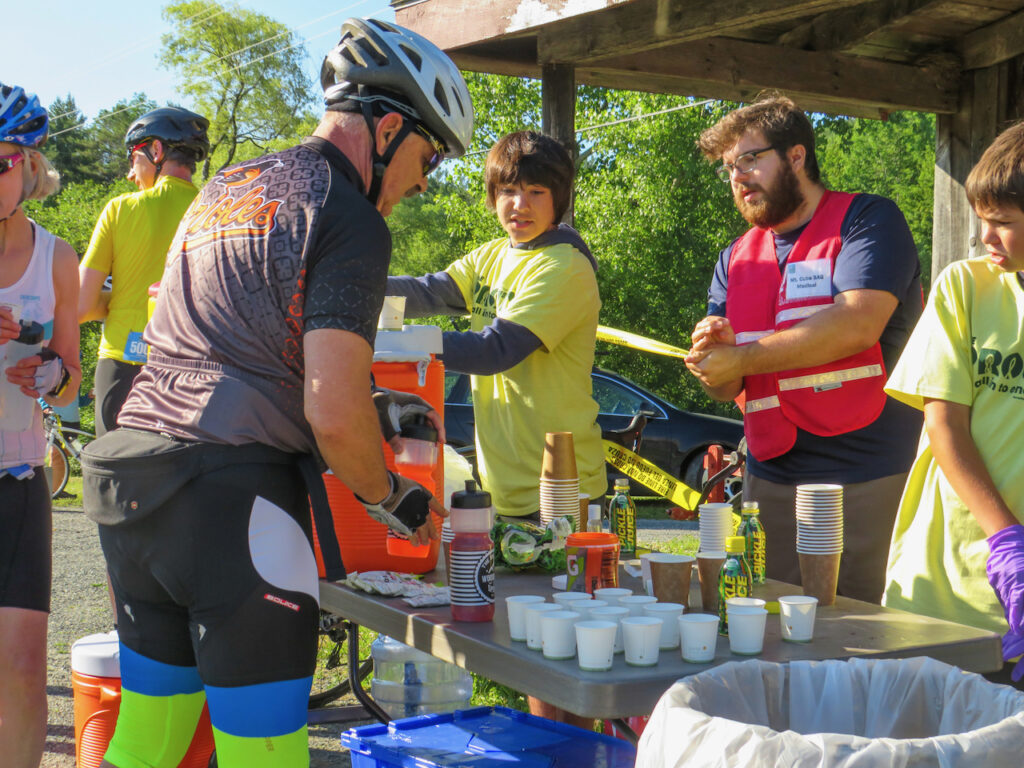
Long-time Prouty-Pemi liaisons have been Tom Ciglar (head of dining services) in the early years, Deb Kure (head of nature) since 2011, and as of 2022, Michaella Frank (head of ACs), along with about 20 annual sandwich-making, watermelon-cutting, water jug re-filling campers, and occasional Silver Cornet Band musicians or staff fiddlers to make it “The Best Party on The Prouty!” It is an ideal community involvement, as it is also an opportunity for the Pemi campers to witness long-haul cyclists of all ages continuing with their athleticism as adults and making the lifestyle choice of giving their time and physical efforts to such a worthy cause.
Clearly the Pemi efforts pay off, as a group of Prouty cyclists told us, “We love the enthusiasm of the Mt. Cube SAG Stop, hosted by Camp Pemi boys, and their specialty sandwiches, encouraging riders up the hill, and spontaneous camp song renditions!”
Baker Ponds Butterfly Count
For 20 years the Baker Ponds Butterfly Count has been an important tracking and conservation tool for naturalists in New Hampshire. The Count was created in part by Paula Goldberg, a former Pemi staff member and parent. Paula kindly provided a history of the Butterfly Count, its purpose, and Pemi’s ongoing and crucial involvement:
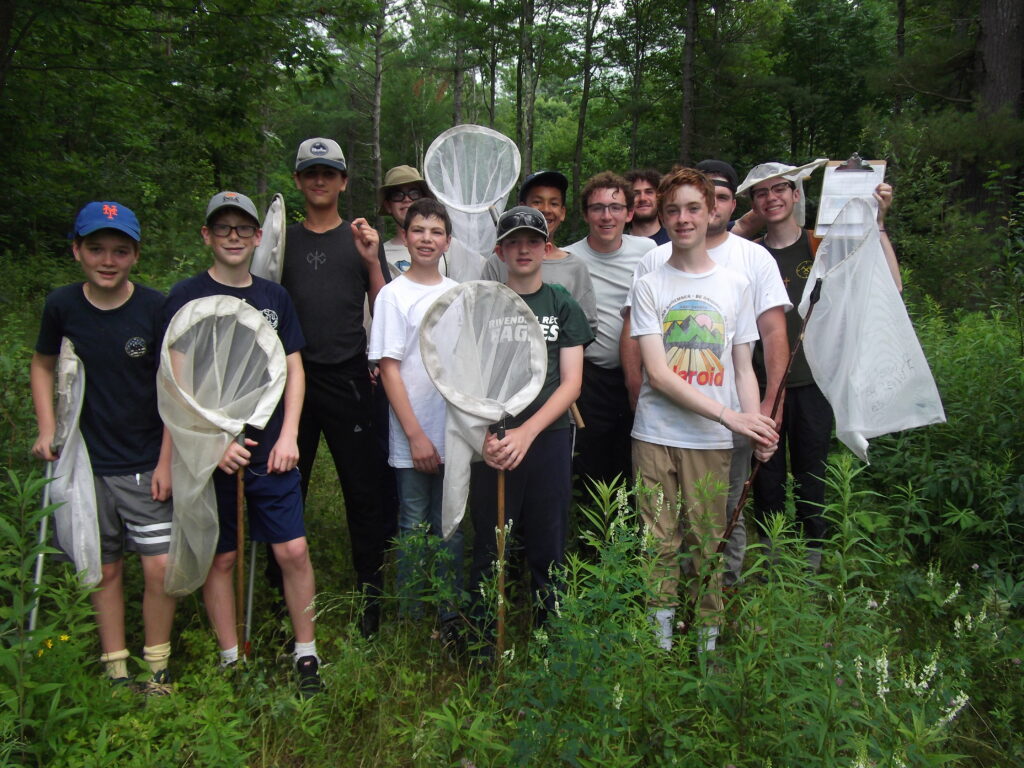
During the summer of 2004, my second year on Pemi’s Nature Program staff, the Baker Ponds NH Butterfly Count was started by me; a friend and entomologist, Nate Erwin of the Smithsonian’s National Museum of Natural History’s Insect Zoo; and Larry Davis, Nature Program Director emeritus. I knew that Nate would enjoy a break from the hot, humid DC summer and hordes of tourists that descend on the museum, so I extended an invitation for him to visit camp. To my surprise, he needed more of an enticement. His acceptance was conditional. He agreed to visit only if Pemi registered for the North American Butterfly Association’s Fourth of July Butterfly Count — a first for Pemi and a deal we could not refuse!
An annual butterfly survey has been conducted for almost 50 years, first by the Xerces Society, then by the North American Butterfly Association. The count, based on the Audubon Society’s Christmas Bird Count, runs from mid-June through late July every summer throughout North America. Participants in the count conduct a one-day field survey of all butterflies observed within a 15-mile diameter circle which is kept the same every year.
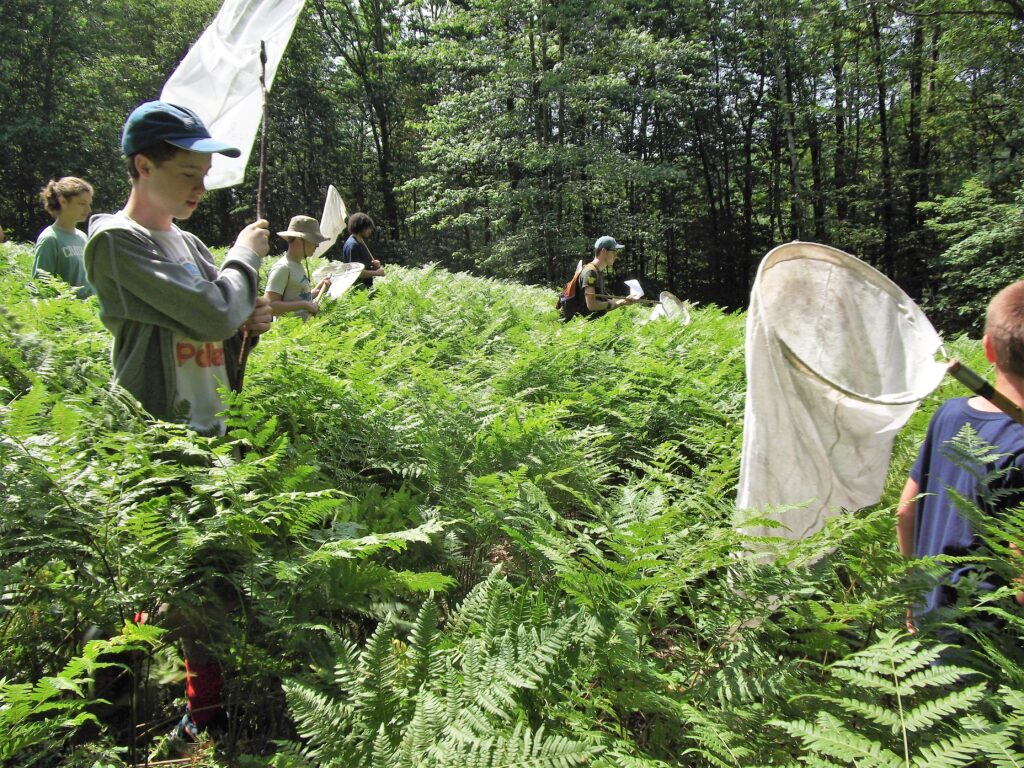
At Pemi, the butterfly count started as a modest attempt to engage Pemi campers in a citizen-science opportunity. The focus of the count is the observation and counting of butterfly species and numbers. Although the butterfly count circle is difficult for a large group of participants to cover in one day, Pemi’s Nature Program staff and campers manage to survey many rich and diverse habitats close to camp, from fallow farm fields to wetlands, and to rocky areas in the foothills of the White Mountains. Spending a day in the field is not without its rewards. It’s often hot and sunny. Mercifully, the day ends at Moose Scoops in Warren for ice cream and a tally rally with all the day’s participants.
Through the years, count participation has expanded to local and summer residents in large part due to the tireless work of George Dewolf, a friend of Pemi and Wentworth resident, and a group of interpretive volunteers at Quincy Bog, a favorite destination for off-campus nature field trips. Count “regulars” now include local butterfly enthusiasts from around the state, teachers and college professors, and natural resources specialists who help to cover areas in the count circle Pemi campers don’t reach.
Through 2021 the Baker Ponds Butterfly Count was the only reporting site in the state of New Hampshire. Again, thanks to the efforts of George Dewolf, who agreed to become the Count Coordinator in 2019, the butterfly count sites in the state of New Hampshire have multiplied. George has taken the count to new levels with virtual training opportunities and coordination with state wildlife specialists. The short- and long-term data we continue to collect every summer is a treasure trove for budding, amateur, and professional scientists alike.
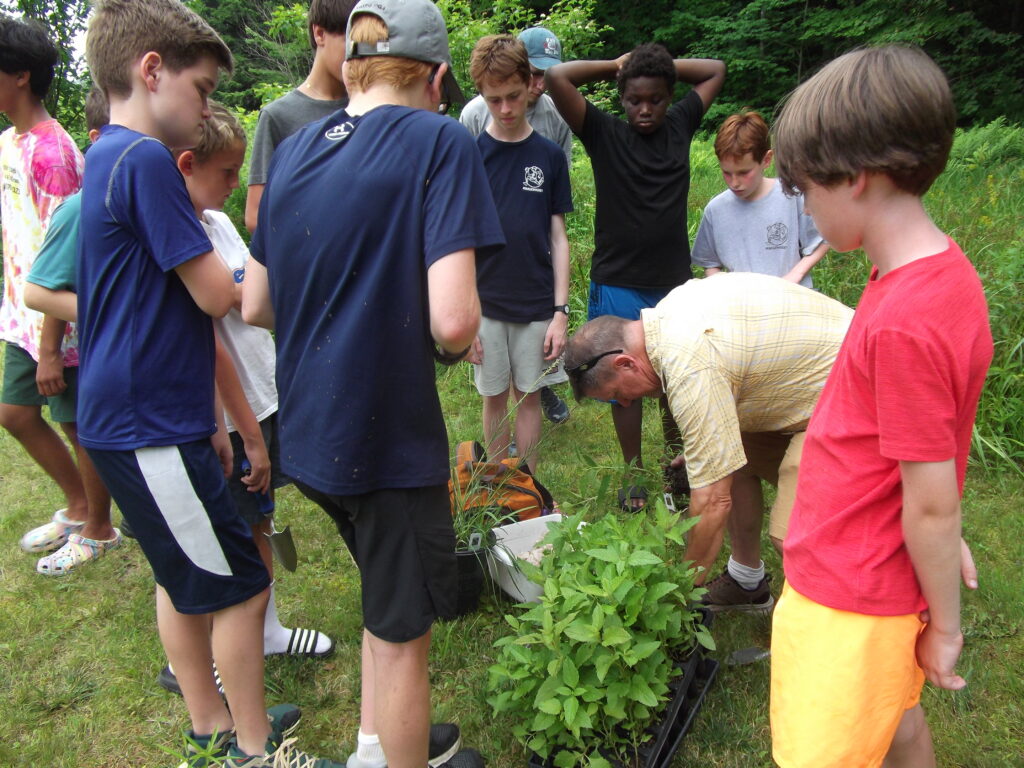
Many thanks to Paula for the history! George Dewolf adds that the current state of the various butterfly counts in New Hampshire is a cooperative effort between NH Fish & Game, The Harris Center for Conservation Education, Ausbon Sargent Land Trust, Tin Mountain Conservation Center, Pollinator Pathways NH, NH Audubon, UNH Extension, and, of course, Pemi’s citizen-scientists. That’s quite a collection of organizations for our campers to be working alongside and in support of! In recognition of their efforts, George referred to Pemi campers as, “beacons of hope for future wildlife and habitat protection.”
In addition to the count itself, Pemi campers and staff, Nate Erwin, and Paula recently undertook a new series of plantings down by our Junior Point. They planted a combination of native plants – goldenrod and Joe-pye-weed – to help feed monarch butterflies on their southern migration every September.
Many thanks to Deb, Nick Gordon, Larry Davis, Paula Goldberg, Nate Erwin, George Dewolf, and the Pemi boys past and present who have taken part in this wonderful experience!
Cans from Campers
Summer is particularly challenging for those facing hunger. Pemi’s Cans From Campers initiative and the generosity of the Pemi community are helping to change that for local families who experience food insecurity. Summertime presents a twofold challenge: children who qualify for free or reduced-cost meals at school lose access during summer vacation while, simultaneously, supplies at food banks are at their lowest as people traditionally donate over winter holidays, not summer months.
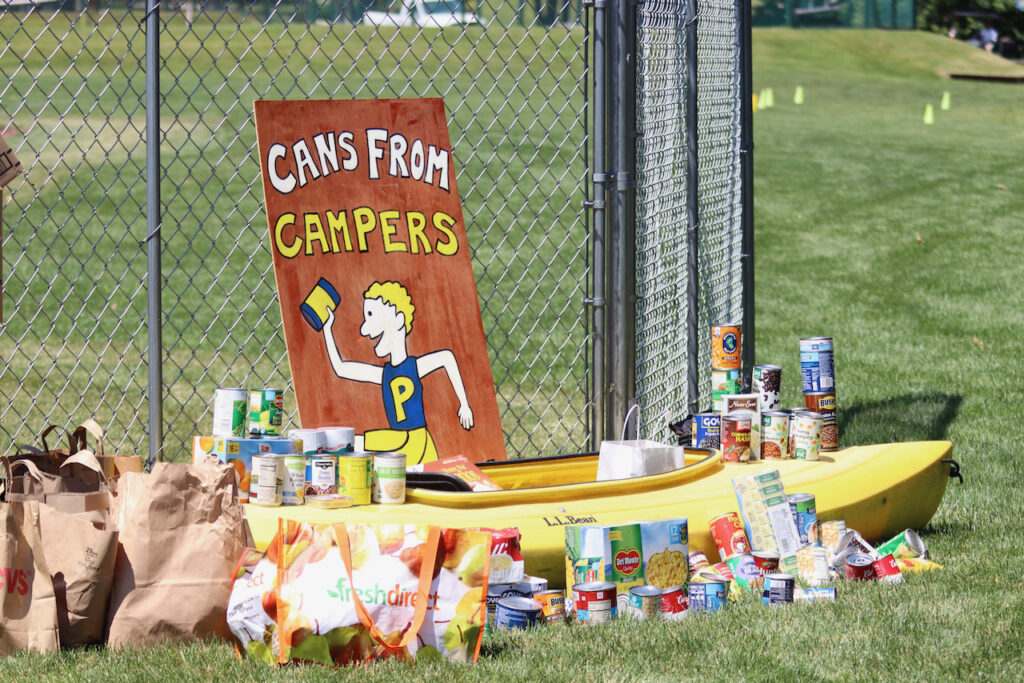
The brainchild of Dottie Reed, Cans From Campers began in 2015 and has quickly become Pemi’s most visible community service project. On the opening day of each session, campers are asked to bring non-perishable food items and place them into our now-iconic collection site: a bright yellow kayak. Dottie and crew relocate the donations to the Big House where, after a few days of settling in, campers volunteer to sort, weigh, and prepare the goods for transfer to a local food bank in Plymouth. Since 2015, Pemi families and staff have provided the equivalent of thousands of meals through this simple project.
As Dottie notes, “While the goal is to help local families in need, Cans From Campers has a positive effect on our own camp community. The yellow kayak overflowing with donations makes a powerful, visual symbol of how each boy’s individual contribution leads to a cumulative good. It sets the tone for the season when, on day one, the first thing a boy does is to think of helping someone else.”
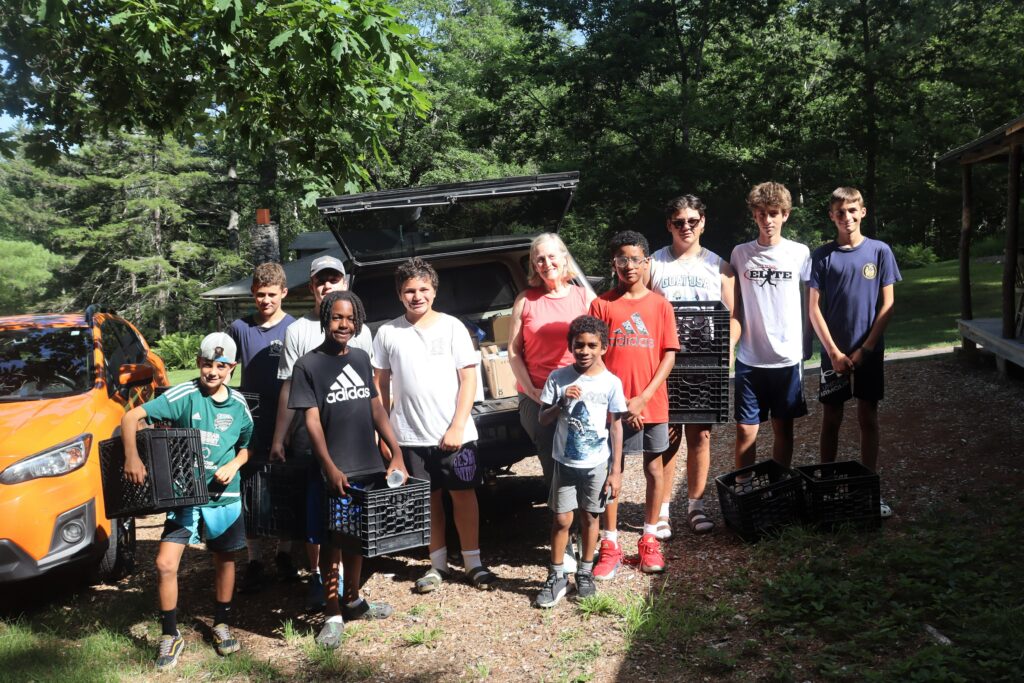
After witnessing the impact that just one camp community could make, Dottie saw greater potential: what if summer camps everywhere joined in? Kenny introduced the idea to fellow members of the New Hampshire Camps Association, an organization of camp directors and leaders of around 100 summer camps, and a few camps hopped right on board. Covid interrupted the momentum but, at a recent meeting, Mark Cadman, head of PR for the organization, rekindled the effort. Mark has run Cans From Campers at Camp Huckins in Freedom NH since learning about it from Kenny. Afterwards, numerous New Hampshire camp directors signed up to get tips for implementing the project at their own camps. Could this be the launch of something big? Dottie’s vision is that Cans From Campers spread out from the shores of Lower Baker to become an annual opening day tradition for summer camps across the nation.



